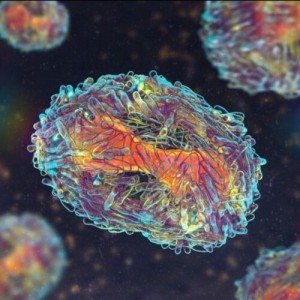Tyzzer disease in preweaned orphaned kittens
Clostridium piliforme, the agent of Tyzzer disease, has traditionally not been considered a major pathogen of cats. The authors analyzed the database of the Pathology Service of the Veterinary Medical Teaching Hospital, University of California-Davis, for kittens less than six-months-old that were autopsied between 2000 to 2021.
In 2021, increased autopsy submissions of orphaned kittens at the hospital led to the identification of multiple cases of Tyzzer disease.
Researchers looked at kittens that had colitis, hepatitis or myocarditis. Sections of colon, liver and heart from these 37 cats were stained with modified Steiner.
The research team found that 37 cases met the search criteria. Data showed that 19 of 37 (51%) cases had intraepithelial, Steiner-positive rods compatible with C. piliforme in at least one organ, confirming Tyzzer disease.
The affected age range was seven to 42 days (median: 17.5 d). Eighteen of the animals were orphaned kittens. Colitis was the major lesion (18 of 19) followed by random hepatitis (11 of 19). Perianal dermatitis with intraepithelial stacked rods was seen in two of 19 of the animals.
Myocarditis was not evident in any of the cases. A PCR assay for C. piliforme on 10 selected cases using formalin-fixed, paraffin-embedded (FFPE) blocks was positive or suspected in colon (five of 10), liver (five of 10), and heart (one of 10). The modified Steiner stain was more sensitive in the detection of bacteria than PCR on FFPE samples. Fifteen kittens had comorbidities.
Researchers said the results suggest that C. piliforme infection is a major contributing cause of death in orphaned kittens, especially in two to four-week-olds, and mainly causes diarrhea associated with ulcerative colitis and/or typhlitis and ileitis, less often hepatitis, and rarely proctitis and perianal ulcerative dermatitis.
Histologically, FPV infection is a major differential consideration, and diagnostically both agents should be considered given that coinfections occur. As in foals, myocarditis appears to occur very rarely.
Studies are warranted to determine whether timely management of infected kittens with antimicrobials such as tetracycline, streptomycin, erythromycin, or penicillin could reduce morbidity and mortality. Tyzzer disease should be a differential diagnosis for the cause of death in kittens, especially those with poor nutritional condition and/or immunosuppression.
Sai Fingerhood et al. “Tyzzer disease in 19 preweaned orphaned kittens.” Journal of Veterinary Diagnostic Investigation. 2023 Feb 10;10406387231154554. doi: 10.1177/10406387231154554.














List
Add
Please enter a comment